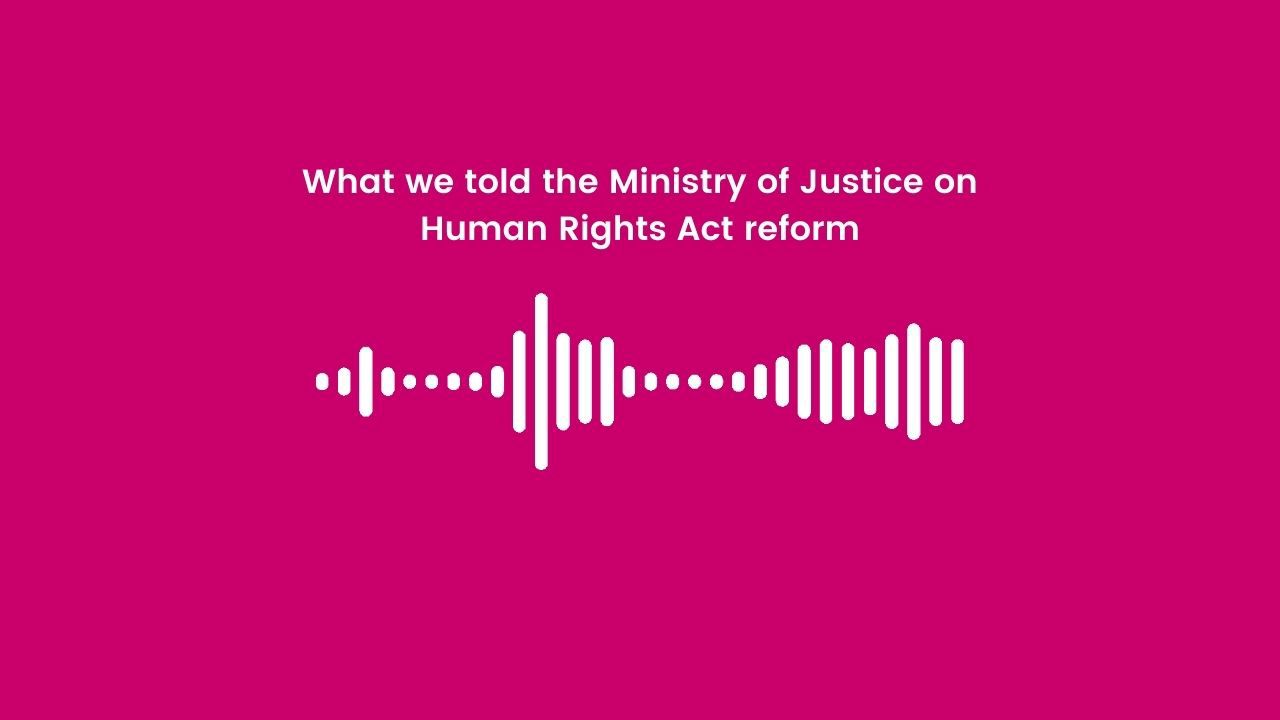Impact: Human Rights Act Reform Consultation
In December 2021, the UK Government released its Human Rights Act Reform consultation. Read about the work we did to respond to the consultation and to support others to respond.
Accessible Versions
When the UK Government released its Human Rights Act Reform consultation in December 2021, it did not release a true Easy Read or accessible versions. We supported self-advocates from learning disability groups to challenge this and accessible versions were eventually released and the deadline to respond was extended.
Our resources
We created new plain language and Easy Read resources to help people respond to the consultation as well as hosting online information sessions.
Ministry of Justice Roundtable
On 17 February 2023, BIHR took part in a Ministry of Justice Roundtable on the Human Rights Act Reform consultation. We asked for clarity around these roundtables and were told the invitee list was not being made public and there were no plans to produce meeting notes or publish responses.
It was hard to see the transparency and good faith of this exercise. Along with several other participants at the roundtable we attended, we wrote to the Ministry of Justice, requesting a note of the meeting to be made public. We also recorded and shared our contribution to the roundtable in which we were clear that reform was not needed.
561
people used our letter template to respond to the consultation. Out of the 12,873 responses, that's 4.3%!
1,736
people accessed our question-by-question guide to answering the consultation
81
people attended our online workshops (one in plain language and one in Easy Read) on the consultation
341
people accessed our Easy Read template letter for responding to the consultation made with All Wales People First, My Life My Choice and Pembrokeshire People First
The response
The UK Government received 12,873 responses in total and the Government's own report on the responses showed a clear lack of support for the proposals. For example:
Section 3
The Government asked if it should remove the legal duty on courts and public bodies to interpret laws in a way that respects human rights, so far as possible. The overwhelming majority of respondents (79%) said no while 11% said they had no preference to any option presented.
Positive Obligations
The Government asked if people support the current obligations on public bodies to take proactive steps to protect people’s rights. 100% of people said yes, with many noting these obligations “provide protection for vulnerable people”
Awards for Damages
The Government asked what factors should be considered when deciding what damages someone can be awarded for a breach of their human rights. Most people (52.8%) confirmed they like the current system, where it’s looked at on a case-by-case basis.
Judicial Independence
The Government asked whether judges deciding what factors to take into account in human rights claims is causing a problem. As far as we can tell from the Government’s statistics, not a single person said yes.
Adding a Permissions Stage
The Government asked if they should add an extra barrier to people having their human rights case heard in court, by requiring them to show they experienced a “significant disadvantage”. The overwhelming majority (90%) said no.
Despite this, the Government attempted to proceed with a Rights Removal Bill that would implement many of these changes and get rid of the Human Rights Act. Fortunately, in June 2023, the Government confirmed this Bill would not go ahead.
Related information
Stay up-to-date
Get our newsletter
Get monthly updates on UK human rights law and our work, resources and events sent straight to your inbox.











